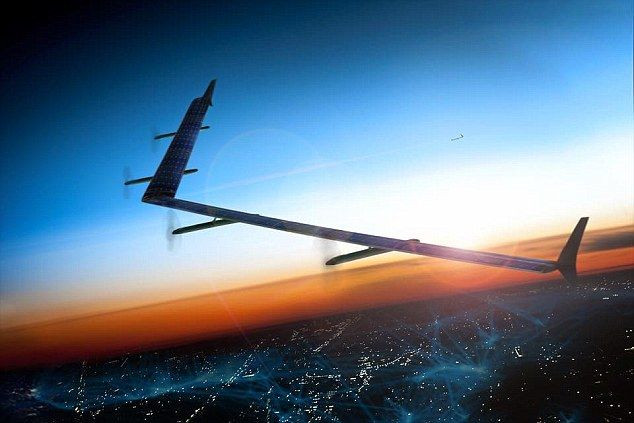Facebook Plans To Test Giant Unmanned Aircraft To Bring Internet Access To Remote Communities

Facebook CEO Mark Zuckerberg revealed Thursday that the social media giant has successfully tested unmanned aircraft that it intends to use to bring Internet connectivity to remote communities.
The company's project, run in conjunction with Internet.org, aims to bring into operation solar-powered, unmanned aircraft, which will have a wingspan greater than that of a Boeing 737, but weigh less than a standard automobile, and be able to remain at altitudes of over 60,000 feet for months at a time, Zuckerberg said in a post on his Facebook page.
The move is seen as an answer to other prominent tech companies' recent forays into equipment that one would expect to see in a science-fiction movie than in an investors' prospectus. Amazon.com Inc has made a high-profile bid to develop unmanned drones as delivery vehicles and Google Inc has launched a project to deliver Internet services via high-altitude balloons.
The aircraft, prototypes of which were tested by the company this summer in the U.K., were one-tenth the size of those it proposes to deploy in the future. The drones, dubbed Aquila, are a leading component of the company's plan to extend Internet access to billions of people, particularly those in rural or remote communities, who do not currently enjoy it.
“We are working towards a real test flight this summer sometime,” vice president of engineering Jay Parikh said in an interview with the Wall Street Journal, on the sidelines of Facebook’s annual developer conference.
“Depending on how this test flight goes, we’ll see what happens,” he added. “This is a big plane, this is a big project and it’s never been done before.”
Experts suggested that there was competition among tech giants for unconventional ideas. “The Amazons, Googles and Facebooks are exploring completely new things that will change the way we live,” Ed Lazowska, who holds the Bill and Melinda Gates Chair in Computer Science and Engineering at the University of Washington, told the New York Times. “There are other companies out there like Hewlett-Packard and IBM, but they aren’t doing the really huge things anymore.”
Facebook’s fourth-quarter earnings were up 34 percent, hitting $701 million, thanks to strong growth in advertising, particularly on mobile devices, Fortune reported, and the company's stock price has more than doubled since it debuted on the Nasdaq stock exchange in May 2012.
© Copyright IBTimes 2025. All rights reserved.






















